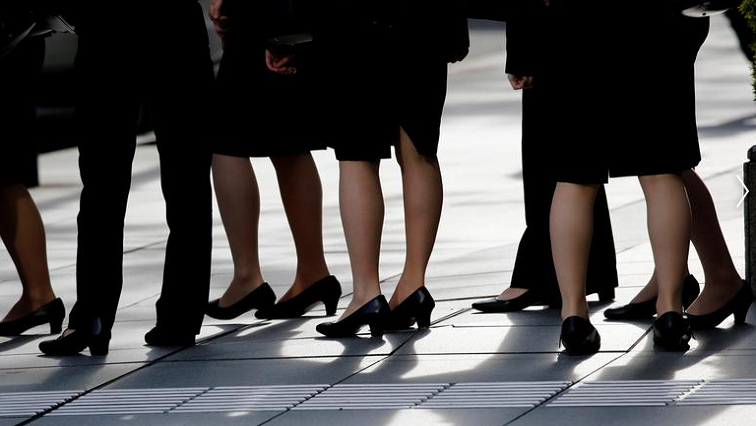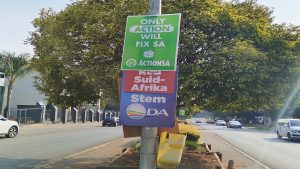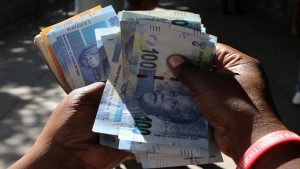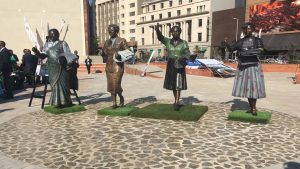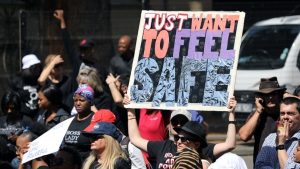Despite constituting the majority of South Africa’s population, and comprising the largest number of voters, women are still largely underrepresented in candidate election lists.
In the 2016 municipal elections, women accounted for 58% of voters, and yet just under 40% of the elected candidates were women.
Laws such as the Municipal Structures Act require that party lists for local government elections “seek to ensure” that 50% of candidates are women.
Calls are now being made for the IEC Act to be amended to enable the IEC to demand gender-balanced candidate lists from political parties.
The participation of women as candidates in elections has not reached the desired levels in a country where issues around women empowerment take centre stage.
According to the Commission for Gender Equality (CGE), there were more men elected as councillors compared to women in the 2016 municipal elections.
Dr Thabo Rapoo, Head of Research and Policy at the CGE, says the pursuit of gender balance should not only be a key focus during the election period, but must feature even between elections.
“We argue that in order to maintain or improve balance, when female councillors resign, retire, or are deceased, they should be replaced by other female councillors to maintain the balance. Because if not, you might find the gains made during the election period are lost in between the elections. So, at this stage, the picture might even become worse compared to what it was after the 2016 elections which was already worse.”
To make up for this gender imbalance, some political parties have adopted a 50/50 quota system to increase women participation and representation.
Deputy Head of the Women and Democracy Initiative based at the University of the Western Cape’s Dullar Omar Institute, Vivienne Mentor-Lalu says whilst quotas are welcomed, they do not go far enough.
She says a number of issues prohibit women from becoming ward candidates.
“It is because of sexism, inequality and patriarchy. And therefore, measures need to be put in place to correct that. If we think of employment inequity as well, talking about Affirmative Action strategies to address the kind of historical inequality, this is a similar kind of thinking.”
Nana Ngobese-Nxumalo formed the Women Forward political party in 2009 and went on to contest in the 2019 general election. The party campaigned for the upliftment of women and advocated for women’s rights. But lack of resources has made it difficult to contest the upcoming municipal election.
Ngobese-Nxumalo says threats of violence deter many women from participating as candidates.
“There is a lot of fear that is instilled in campaigning. Women don’t want to be in conflict-ridden spaces. Where you see women candidates, you can see how they are treated by their male counterparts. People are killing each other. No woman wants to leave their children and die for politics. You saw at Inanda where three women were gunned down just outside a school where they were having a meeting. Those were mothers. It becomes a deterrent for many women to want to get into politics because it is a conflict-ridden space.”
But this has not stopped Ikhwezi Political Movement, a women-led party based in Plettenberg Bay in the Western Cape from fielding an all-women candidate list to gain some seats in the Bitou Local Municipality.
Party President Nokuzola Kolwapi says women participate in many structures of society and yet they are compromised.
“They are being undermined when it comes to leadership roles. They are not given what they deserve. They are brought as if they are there to beautify the curry or done favours. It is unapologetic that women should be at the forefront of political involvement because that is what they are doing anyway.”
Women in communities often bear the brunt of poor service delivery due to inefficiencies in their municipalities.
Food vendor Thobeka Nomatshila, who operates from the Bekkersdal township taxi rank, says poor service delivery impacts women the most, as they are the primary caregivers.
“There is nothing that is ok here. There are no toilets. The only one that operates is used by both men and women. We are forced to wait for each other, and we are not safe as women, but we have to use it, what can we do?”
South Africa has made great strides and there are laws in place that promote gender equality and recognise the rights of women to participate equally with men and stand for public office.
But Rapoo says the IEC must be given more power to demand and enforce gender balance.
“Maybe the IEC Act should be amended to demand to allow the IEC to demand gender-balanced candidate lists when parties have to submit their candidate lists. If that requirement is included it gives the IEC the teeth to enforce gender requirements and we also propose that parties should be penalised through cutting of funding to political parties.”
The November 1st municipal elections will show if parties have stepped up to the challenge of ensuring gender equality, by placing more women in political leadership positions.
LGE 2021 | President Ramaphosa declares 1 November, election day, a public holiday:


